HEUR:Trojan.Script.Generic is a virus file that infects computers. HEUR:Trojan.Script.Generic takes over the computer, collects personal data, or tries to manipulate the computer so that hackers can access it.
If your antivirus displays a notification of HEUR:Trojan.Script.Generic then there are files left over. These HEUR:Trojan.Script.Generic related files should be deleted. Unfortunately, Antivirus often only partially succeeds in removing the remains of HEUR:Trojan.Script.Generic.
The HEUR:Trojan.Script.Generic virus can quickly spread through your computer. It does this by copying files, modifying files, and disabling critical Windows components. After the virus has reached your computer, it can spread further across the computer network or the Internet.
If the virus spreads across the computer network, the HEUR:Trojan.Script.Generic virus first searches for victims. Once it has found other victims, it copies the virus and starts the process again.
After HEUR:Trojan.Script.Generic has taken over the computer, it looks for personal data. This personal data can then be stolen and used for spam or identity fraud.
Thus, it is essential to remove all remnants of HEUR:Trojan.Script.Generic. This article will tell you how to altogether remove HEUR:Trojan.Script.Generic from your computer. All the software advised in this article can be installed and used alongside installed antivirus software without any trial.
How to remove HEUR:Trojan.Script.Generic
Malwarebytes is an essential tool in the fight against malware. Malwarebytes is able to remove many types of HEUR:Trojan.Script.Generic malware that other software does often miss, Malwarebytes is costing you absolutely nothing. When it comes to cleaning up an infected computer, Malwarebytes has always been free and I recommend it as an essential tool in the battle against malware.
Install Malwarebytes, follow on-screen instructions.
Click Scan to start a malware-scan.
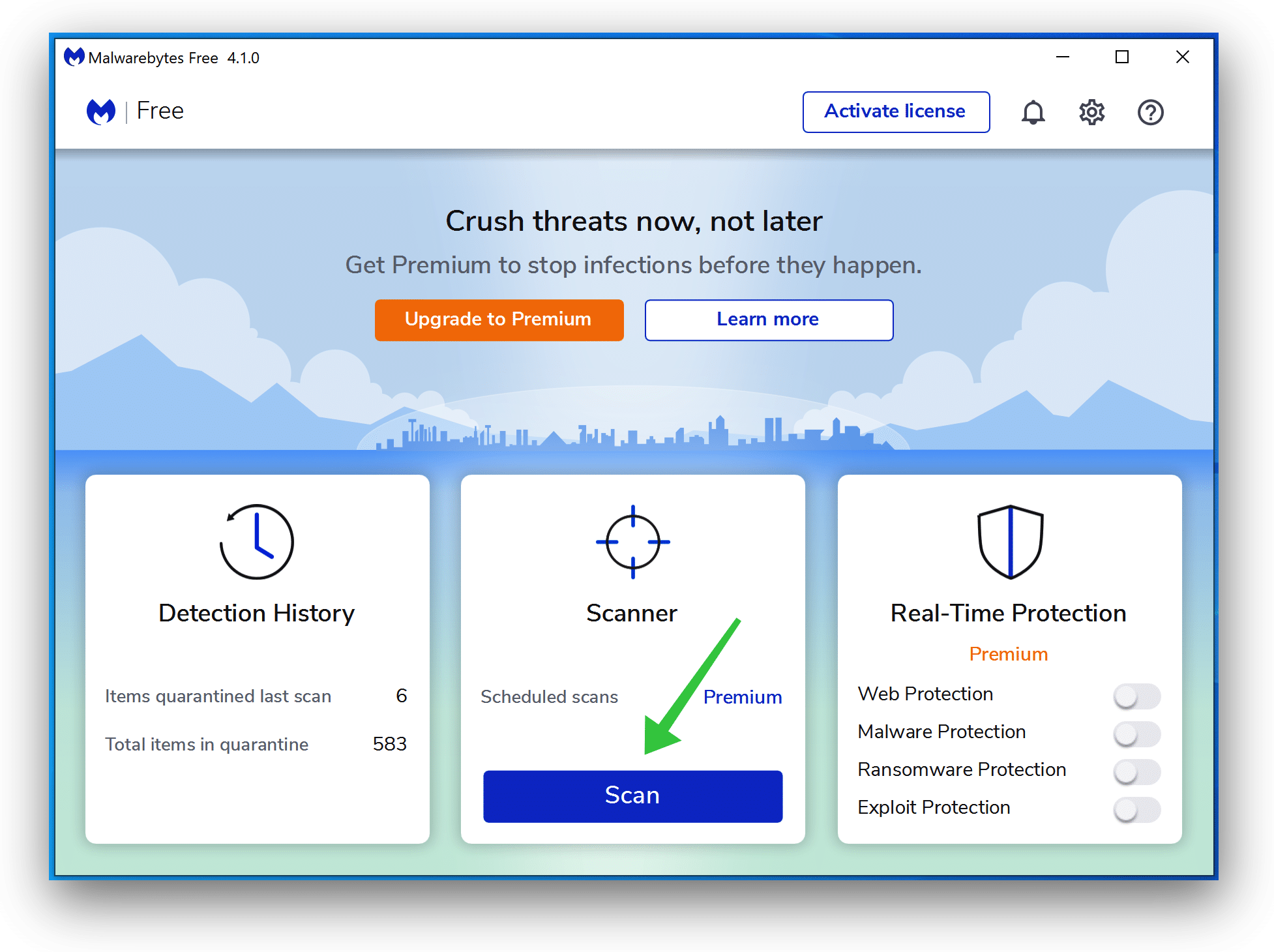
Wait for the Malwarebytes scan to finish. Once completed, review the HEUR:Trojan.Script.Generic adware detections.
Click Quarantine to continue.
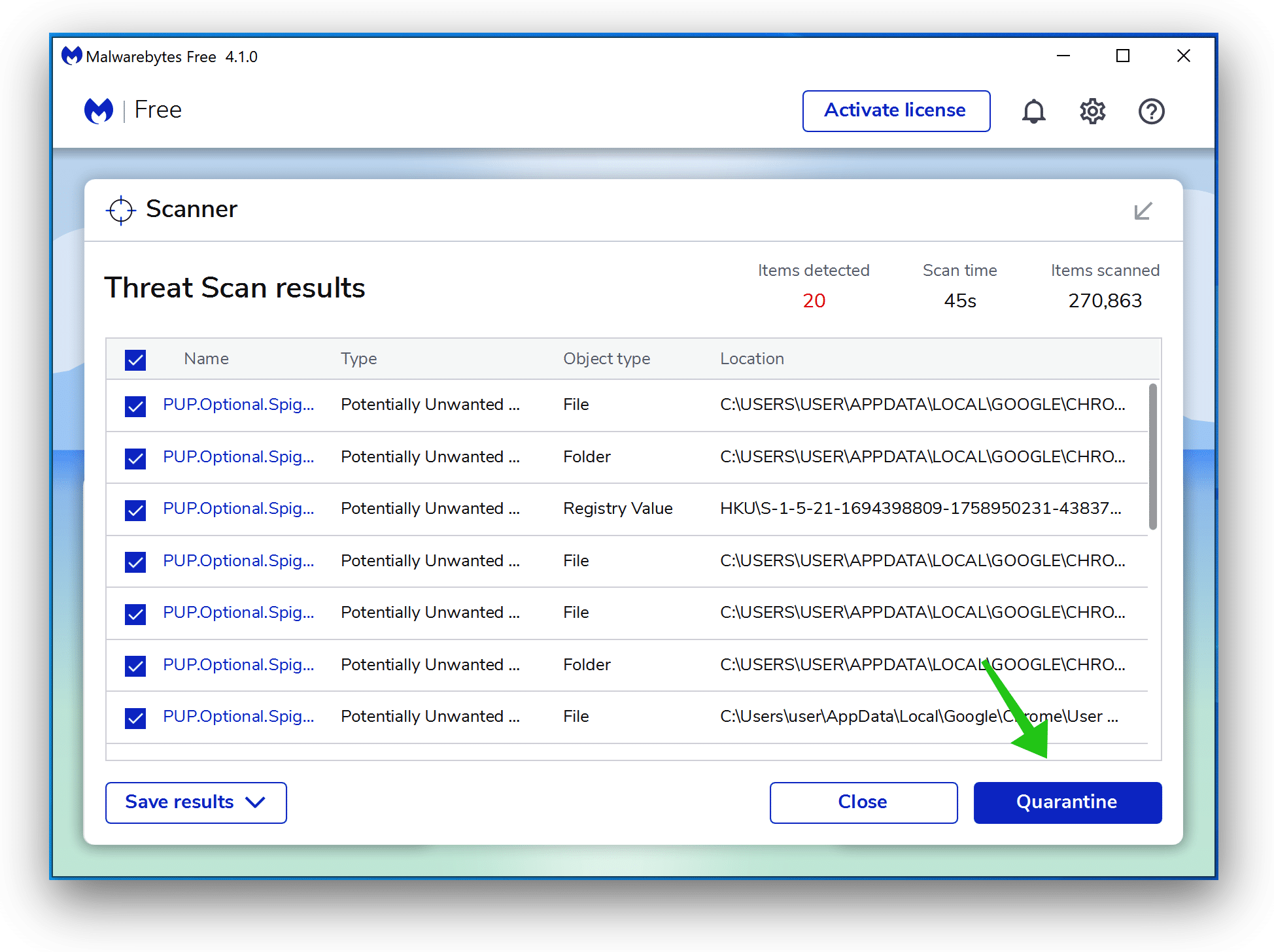
Reboot Windows after all the adware detections are moved to quarantine.
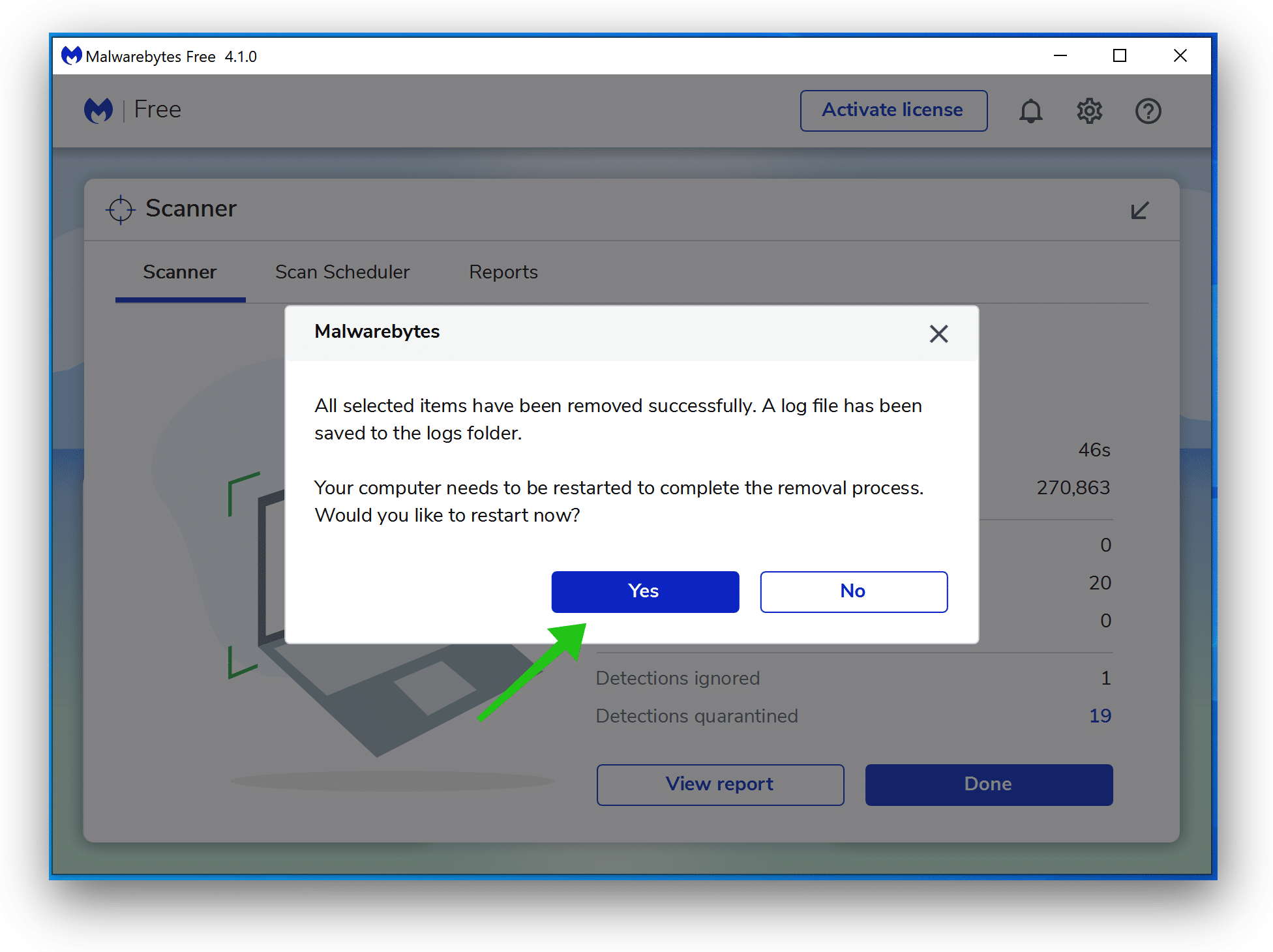
Continue to the next step.
Remove unwanted programs with Sophos HitmanPRO
In this second malware removal step, we will start a second scan to make sure there are no malware remnants left on your computer. HitmanPRO is a cloud scanner that scans every active file for malicious activity on your computer and sends it to the Sophos cloud for detection. In the Sophos cloud both Bitdefender antivirus and Kaspersky antivirus scan the file for malicious activities.
When you have downloaded HitmanPRO install the HitmanPro 32-bit or HitmanPRO x64. Downloads are saved to the Downloads folder on your computer.
Open HitmanPRO to start installation and scan.
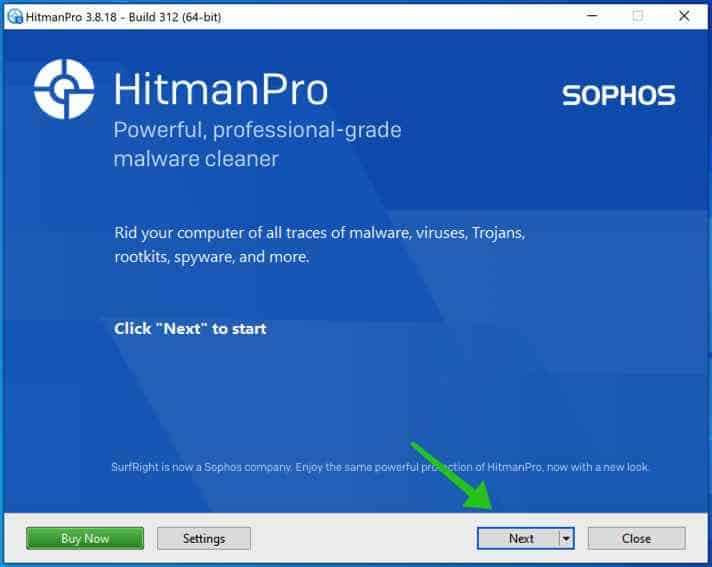
Accept the Sophos HitmanPRO license agreement to continue. Read the license agreement, check the box and click on Next.
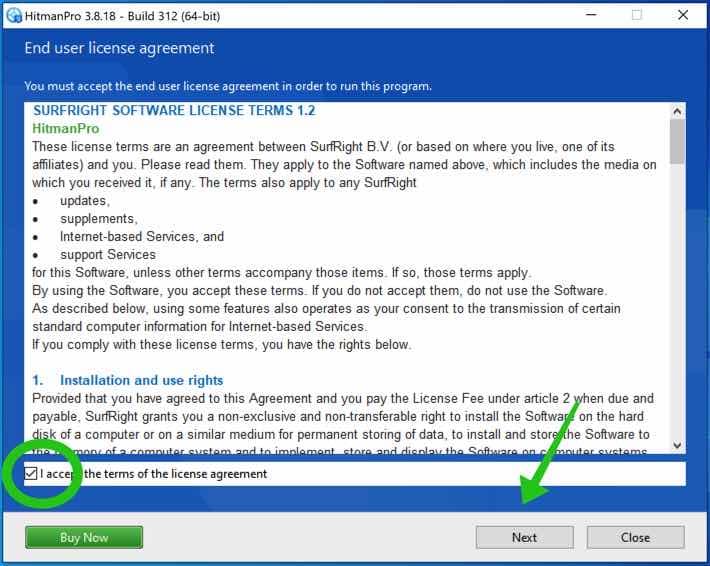
Click the Next button to continue Sophos HitmanPRO installation. Make sure to create a copy of HitmanPRO for regular scans.
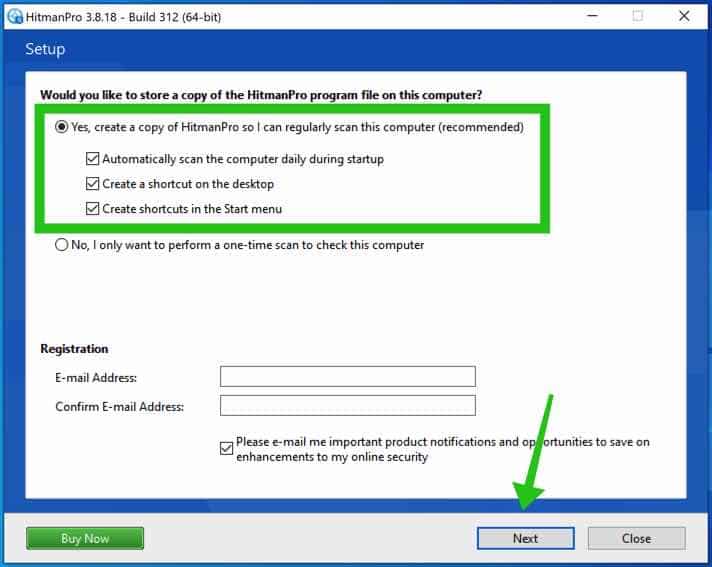
HitmanPRO begins with a scan, wait for the antivirus scan results.
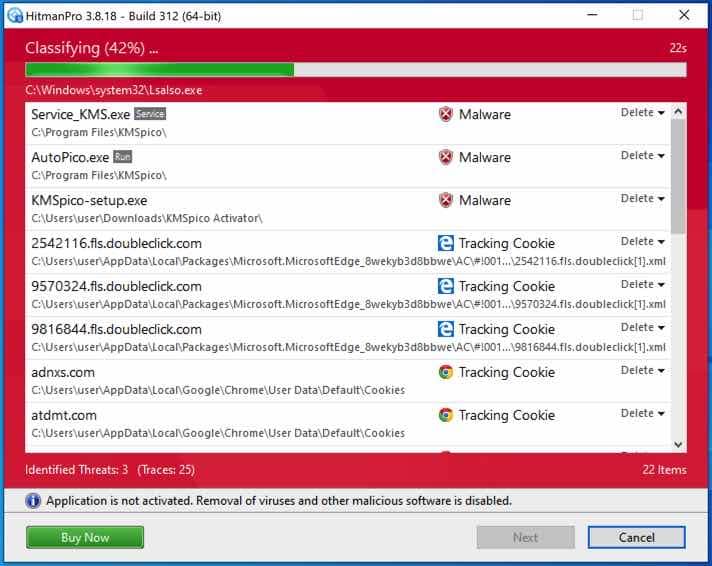
When the scan is done, click Next and activate the free HitmanPRO license. Click on Activate Free license.
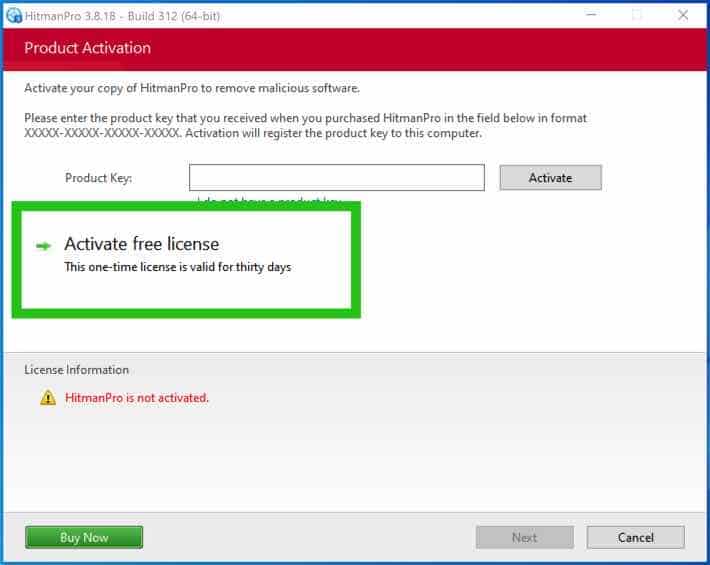
Enter your e-mail for a Sophos HitmanPRO free thirty days license. Click on Activate.
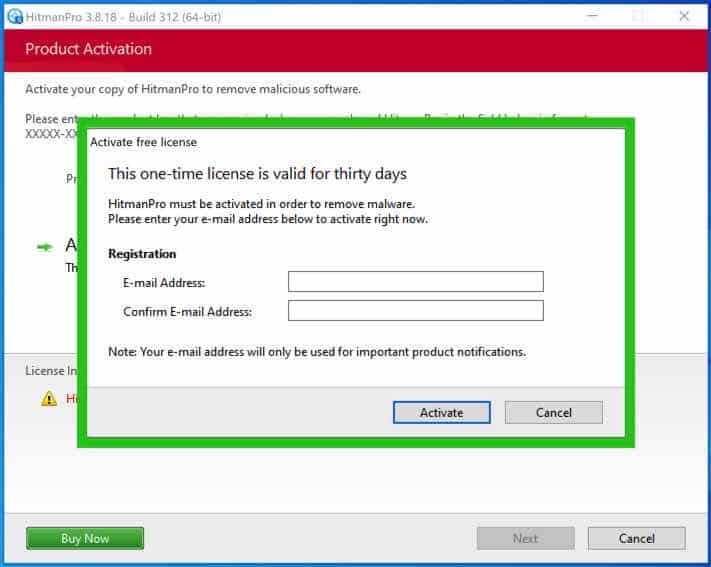
The free HitmanPRO license is successfully activated.
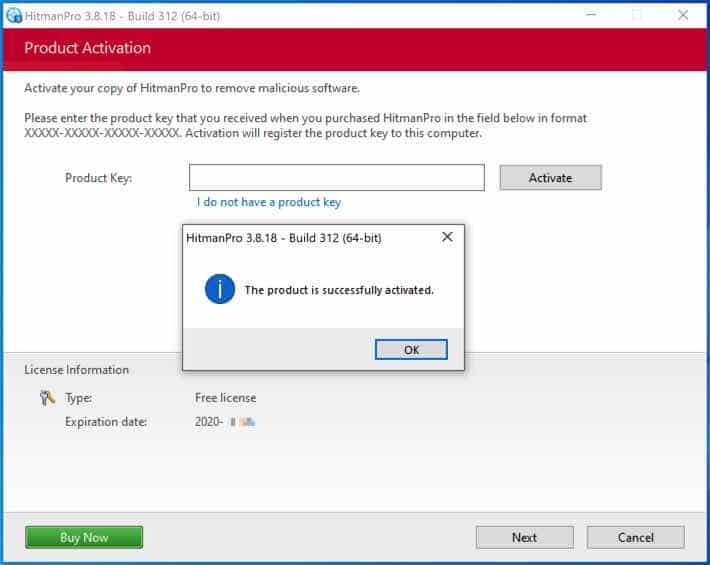
You’ll be presented with the malware removal results, click Next to continue.
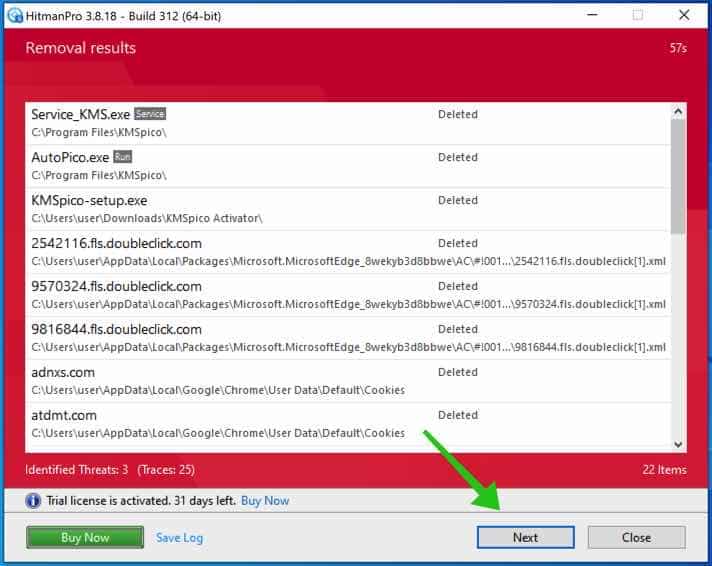
Malicious software was partially removed from your computer. Restart your computer to complete removal.
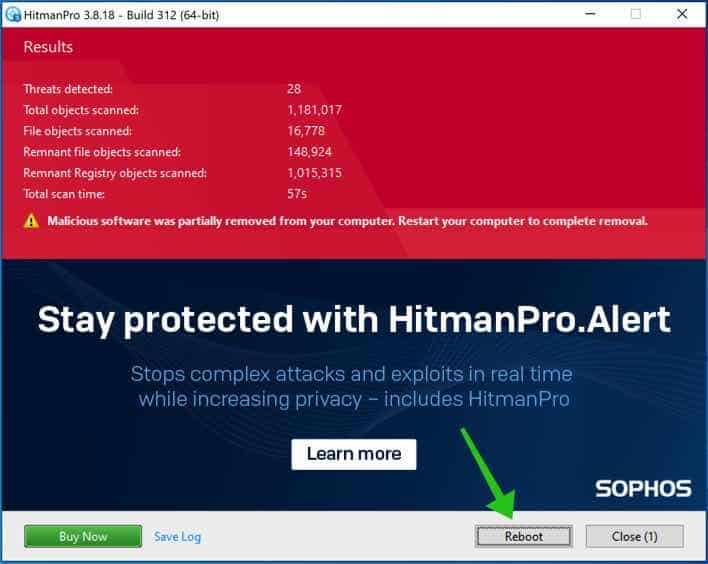
Bookmark this page when you reboot your computer.